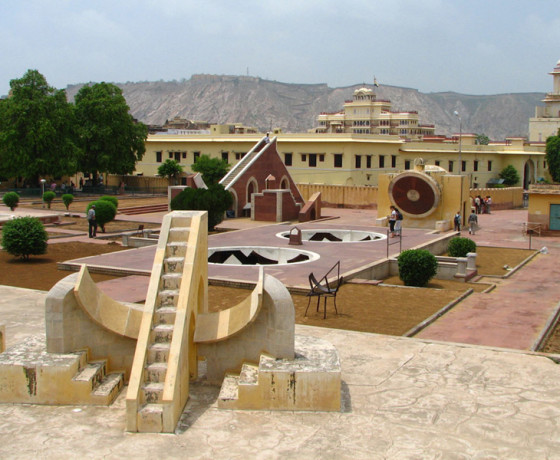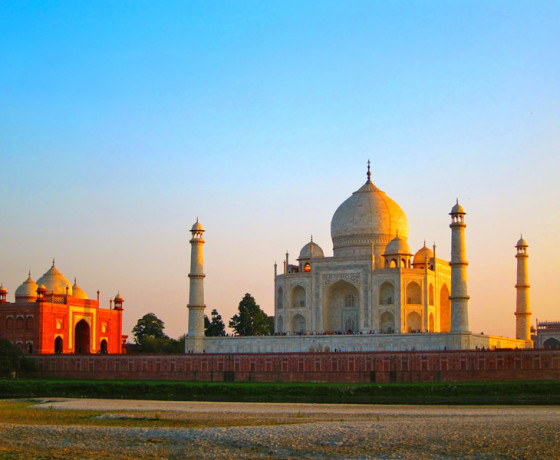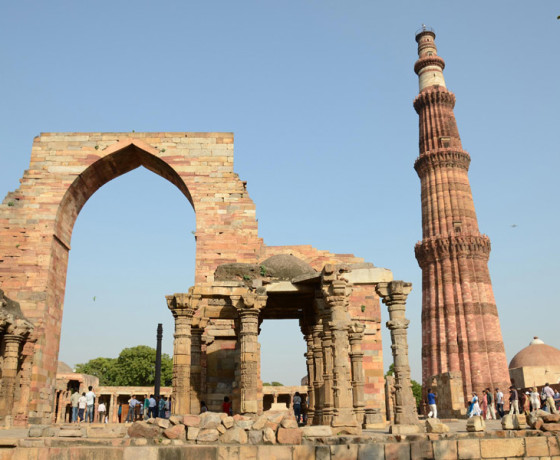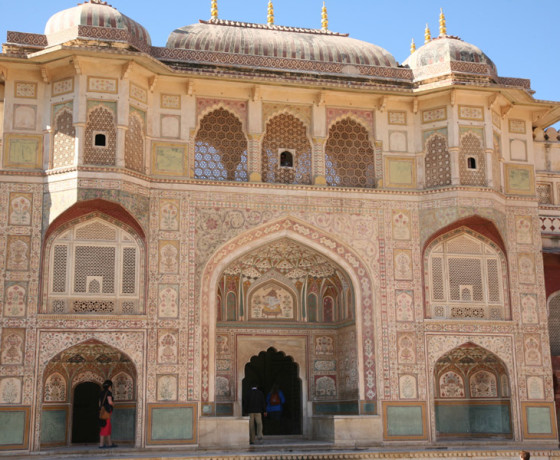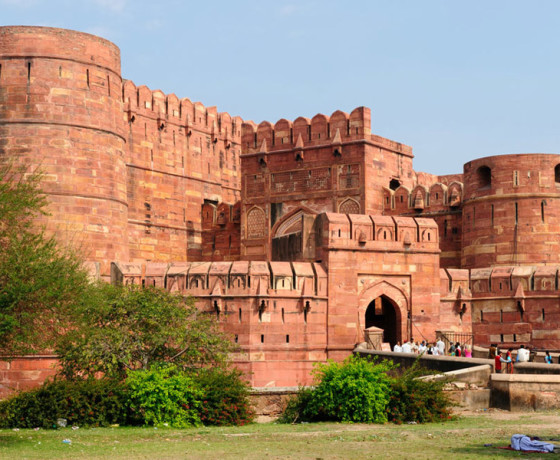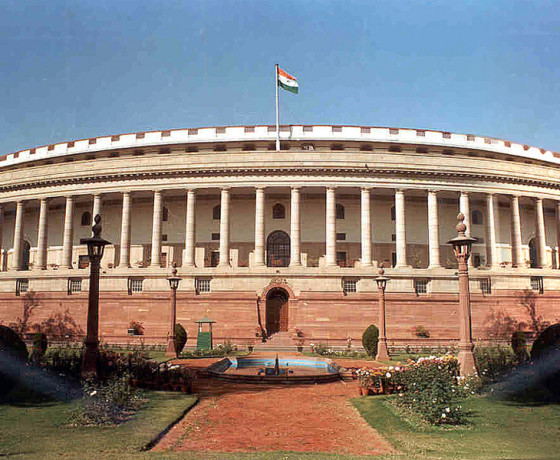Forts & Palaces Of Rajasthan
DAY 01: ARRIVE DELHI
You will arrive at New Delhi’s International Airport. Following customs & immigration formalities and baggage collection, a Cox & Kings representative will meet you as you EXIT the ARRIVALS TERMINAL building after which you would be transferred to the hotel. Upon arrival proceed for check in at the hotel. India’s capital and a major gateway to the country, contemporary Delhi is a bustling metropolis, which successfully combines in its folds - the ancient with the modern. Amidst the fast spiralling skyscrapers the remnants of a bygone time in the form of its many monuments stand as silent reminders to the region’s ancient legacy. The first impressions for any visitor travelling in from the airport are of a specious, garden city, tree-lined with a number of beautiful parks. Overnight in Delhi
DAY 02: IN DELHI
Buffet breakfast at the hotel. Later, proceed on a sightseeing of Old and New Delhi. You will head for a guided city tour of the Old City of ‘Shahjahanabad’, founded by one of the greatest Mughal Emperor Shah Jahan. Your introduction to the city will be with a visit to Jama Masjid, the largest mosque in Asia built by Shahjahan, drive past the Red Fort (Closed on Mondays) - the magical monument in red sandstone, built at the pinnacle of the Mogul empire, Raj Ghat - the cremation site of Mahatma Gandhi Afternoon proceed for a guided tour of New Delhi. You will drive past the India Gate, Rashtrapati Bhawan – the President’s Residence, the Parliament House – the Government headquarters and other Government buildings. Also visit Humayun’s Tomb - the first great example of a new distinctive style, which developed to become the hallmark of the Mughal Dynasty. Also visit Qutab Minar (Tower of Victory) - built to establish the might of Islam and onset of Muslim rule in India. Return back to the hotel after city tour. Overnight in Delhi
DAY 03: DELHI-SIKANDRA-AGRA
Buffet breakfast at the hotel. You will be driven to Agra (approx 205 kms/ 04 ½ hrs) en route visiting Akbar’s mausoleum at Sikandra, Sikandra - located 10 kms from Agra on the Agra-Delhi road. The sandstone and marble tomb of Akbar, the greatest of the Mughal emperors, is situated in the middle of a peaceful garden. Akbar started its construction himself, blending Islamic, Hindu, Buddhist, Jain and Christian motifs and styles and was completed by his son Jahangir in 1613 AD. The tomb is a splendid example of the combination of Hindu and Muslim architecture and represents Akbar's philosophy and secular outlook. Following visit, continue your drive to Agra. Upon arrival, proceed for check in at your hotel. The city of Agra, the quintessence of the grand Mughal era, reigns to this day in the public mind as the embodiment of royal grace, imposing architecture and power. Agra is globally renowned as the city of the Taj Mahal. But this royal Mughal city has, in addition to the legendary Taj, many monuments that epitomize the high point of Mughal architecture. No tour to India can be complete without paying a visit to this erstwhile capital of the Mughals and the city of the Taj Mahal, the world's most beloved monument. With its laidback lifestyle and its immense wealth of architecture, handicrafts and jewellery, Agra is amongst the most remarkable city of the world Later visit the Great Fort of Agra, an outstanding example of Mughal architecture and the seat and stronghold of the Mughal Empire under successive generations. Originally planned as an impregnable military structure by Akbar, the Agra Fort, over a period of time, acquired all the elegance, lavishness and majesty of an imperial palace. Situated 1 km upstream of the Taj Mahal, on the right bank of the Yamuna, the Agra fort was built under the direction of Akbar, by Mohammed Quasim Khan, his commander-in-Chief and Governor of Kabul and added to by his son Jehangir and grandson Shahjahan. An imposing structure with walls of red sandstone, almost 3 kilometres (two miles) long. Also visit Baby Taj (Itmad-ud-Daulah). Return back to the hotel following sightseeing tour. Overnight in Agra
DAY 04: AGRA-FATEHPUR SIKRI-JAIPUR
Early morning proceed for visit to the world renowned Taj Mahal by sunrise (Closed on Friday’s). Referred to as one of the wonders of the world, the Taj Mahal in Agra is the epitome of tourism in India and is celebrated for its architectural magnificence and aesthetic beauty. A symphony in white marble, a tribute to eternal love, it was built by the Emperor Shah Jahan in memory of his wife Mumtaz Mahal. There are tombs of Mumtaz and Shahjahan within the mausoleum. Done in white marble, it took 22 years and over 20,000 workers and craftsmen to complete this rhapsody in stone (1630-52 AD). The main structure is set amidst landscaped gardens. While on three sides it is surrounded by high walls, the rear is bound by the river Yamuna. Return back to your hotel for breakfast. Post breakfast you will be driven towards Jaipur (approx 237 Kms /06 Hours) en-route visiting Akbar’s abandoned capital, Fatehpur Sikri. Fatehpur Sikri, the deserted red sandstone city built by the great Mughal Emperor Akbar as his capital in the late 16th century. It was abandoned soon after it was built when the local wells went dry and it remains today in much the same condition that it was over 300 years ago. It is complete with palaces and mosques and used to be a town larger than London when it was originally constructed. Now it is an extraordinary place to wander around with its buildings in near perfect condition. At the foot of the ridge, an artificial lake has been created which forms one side of the city. Awesome walls with 9 gates protect the three other sides. In 1584, only 14 years after moving here, Akbar abandoned this short-lived capital because of a shortage of water. Today the perfectly preserved public halls and private residences speak of a telling unity; it is an epic poem in red sandstone. Continue your drive to the pink city of Jaipur. Upon arrival proceed for check in at your hotel. Jaipur, the vibrant capital of Rajasthan renowned for its forts and palaces is popularly known as the ‘Pink City’ because of the pink-colour buildings in its old city. An ideal base for touring the royal state, the city has the distinction of being the third jewel of India's "Golden Triangle". Its main claim to fame is that it is India's first 'planned' city built by the famous 18th century astronomer King Sawai Jai Singh II. Overnight in Jaipur
DAY 05: IN JAIPUR
Buffet breakfast at the hotel. You will visit Amber Fort with a photo stop at the Hawa Mahal (Palace of Winds) - a five-storied wonder with a spectacular pyramidal facade and overhanging windows with latticed screens, domes and spires. Continue on drive to the ancient capital of Amer to see the fabulous Amber Fort, situated on a ridge just outside Jaipur city. Maharaja Mansingh, Mughal Emperor Akbar’s most successful General, started the construction of Amber Fort in the 17th century. Before the City Palace was constructed in Jaipur, Amber was the seat of power. The fort is surrounded by fortified battlements and overlooks the Moat Lake. Ruins and remains are spread over the Aravalli hills and sprawling crenellated walls lattice the surrounding area. Later, enjoy a tour of the Pink City, an “abode of rajahs”. The highlights of the tour include a visit to the City Palace Museum, which has a superb collection of Rajasthani costumes, and armory of Mughals and Rajputs including swords of different shapes and sizes with chiselled handles. Many antiques and artifacts belonging to the ruling family are housed here, including a collection of weaponry. It also has an art gallery with an excellent collection of miniature paintings, carpets, royal paraphernalia and rare astronomical works in Arabic, Persian, Latin and Sanskrit. Proceed to the awe inspiring Jantar Mantar Observatory, a stone astrological and astronomical Observatory built by Maharaja Jai Singh in the 18th century. End the tour with a rickshaw ride in the colorful bazaar of the old city. Return back to the hotel after city tour. Overnight in Jaipur
DAY 06: JAIPUR-ALSISAR
Buffet breakfast at the hotel. Later you will be driven towards Alsisar (approx 187 kms/ 04 hrs). Upon arrival proceed for check in at your hotel. In the heart of the Shekhawati region of Rajasthan is the beautiful small town of Alsisar, known throughout the state for its forts and havelis. The structures of this place are a reminder of the cultural and social hotspot this place used to be in the bygone era. Founded in the mid 18th Century, Mandawa’s skyline today is dominated by an imposing mirage like fort, now turned into a hotel. A painted archway decorated with Lord Krishna and his cowherds leads to the bazaar. The terrace of castle Mandawa offers a panoramic view of the town. The Mandawa family’s collection includes ceremonial costumes and precious arms with handles of jade. Evening you will be taken to visit Painted Havelies of Alsisar. Overnight in Alsisar
DAY 07: ALSISAR-BIKANER
Buffet breakfast at the hotel. Morning you will be driven to Bikaner (approx 245 kms/ 05 ½ hrs). Upon arrival proceed for check in at the hotel. Lying in the north of the desert state of Rajasthan, the city of Bikaner is dotted with many sand dunes. More popularly called the camel country, the city is renowned for the best riding camels in the world. Bikaner’s forts, palaces and temples are magnificent creations in red and yellow sandstone and are living manifestations of its rich historical and architectural legacy. Overnight in Bikaner
DAY 08: IN BIKANER
Buffet breakfast at the hotel. Morning you will enjoy a visit to the Deshnoke Temple (Karni Mata temple). Deshnoke is a village located about 30km south of Bikaner and is the site of the famous 600-year-old Karni Mata Temple dedicated to Karni Mata, a form of Goddess Durga. The temple has huge intricately carved silver gates. The most unusual feature of the temple is the rats that scamper freely within the sanctum of the temple. They are regarded as sacred and are fed by priests and devotees, owing to the belief that these rodents will be reincarnated as holy men. Spotting a white rat is considered to bring good fortune. Proceed on a visit to Junagarh Fort, one of the most interesting forts in Rajasthan, with its sumptuously decorated interiors. Built in 1588 by Raja Rai Singh it is unusual in the sense that it was one of the few major forts of Rajasthan that was not built on a hilltop. Instead, it was built on the desert plains; its rugged sandstone bastions and graceful pavilions and balconies are silhouetted against the sky. Afternoon you will also visit the National Research Centre on Camel (formerly known as the Camel Breeding farm) located at a distance of about 10 km from Bikaner city. The Centre has developed a camel museum, which attracts the attention of researchers and tourist. Different breeds of camel are produced and preserved at the centre. At present there are about 500 camels with different breeds like Arabic, Bikaneri, Jaisalmeri and Barmeri. Take a camel ride or watch the calves gambolling or participate in an interactive lecture delivered by a traditional camel breeder or sip a cup of camel milk. Return back to the hotel after city tour. Overnight in Bikaner
DAY 09: BIKANER-JAISALMER
Buffet breakfast at the hotel. Morning you will be driven to Jaisalmer (approx 350 kms/ 6 ½ hrs). Upon arrival proceed for check in at your hotel. Rising from the heart of the Thar Desert like a golden mirage is the city of Jaisalmer founded by Rao Jaisal. A commanding fort etched in yellow sandstone stands, with all its awesome splendour, dominating the amber-hued city. The name Jaisalmer evokes a vivid picture of sheer magic and brilliance of the desert. Famous for the Jaisalmer Fort, Patwon-ki-haveli, sand dunes, and ideal for camel rides and safaris. Rest of the day at leisure. Overnight in Jaisalmer
DAY 10: JAISALMER- MANVAR
Buffet breakfast at the hotel. Morning proceed on a tour of Jaisalmer to visit Jaisalmer Fort, the main attraction of this picturesque desert city of Rajasthan. Located on the top of the Trikuta Hill, the ramparts, bastions and the long-stretching walls of the fort dazzle gloriously during early morning and at sunset. Return back to the hotel following sightseeing tour. Check-out 1200 hours. Early afternoon, you will be driven to Manvar (approx 200 kms/ 04 ½ hrs). Upon arrival proceed for check in at your hotel. Manvar Safaris offer great outdoor adventure and a taste of the Thar Desert. Visitors can choose between camel and Jeep safaris. Visitors can visit tribal (bishnoi) villages, see desert wild life (chinkara, desert fox, Nilgai) watch local craftsmen at work, see chilli and mustard farming in the desert and enjoy the beautiful virgin sand dunes. The longer safari goes to the demoiselle crane feeding grounds at Khichan and the Bishnoi temple In the evening enjoy Camel safari. Dinner at the hotel Overnight in Manvar
DAY 11: MANVAR-JODHPUR
Early morning enjoy Jeep Safari (by non air conditioned shared jeeps) • A typical desert dwelling (dhani) • Mustard and Red Chili fields in the middle of the desert • Craftsmen at work; carpenters, metal smiths, potters, cobblers (Jutti makers) • Virgin sand dunes. • Desert wild life; desert fox, Indian gazelle (chinkara), blue bull (nilgai), peacocks, etc Return back to the hotel for buffet breakfast. Morning at leisure for independent activities. Lunch at the hotel. Following lunch, you will be driven Jodhpur (110 kms / 2 hrs). Upon arrival, proceed for check-in at your hotel (Check in time 1200 hours). Jodhpur, also called the "Blue City" located on the edge of the Thar Desert was once the capital of the former princely state of Marwar state founded in 1459 by Rao Jodha and is now the second largest city of Rajasthan. Flanked on its western side by the Mehrangarh Fort, and on the eastern side by the stately sandstone Palace of Umaid Bhawan; the monuments temples and gardens of Jodhpur depict a multi-faceted grandeur Later in the afternoon, you will visit magnificent Mehrangarh, one of Rajasthan's finest forts, looks down protectively over the city, from the hilltop. Still run by the Maharaja of Jodhpur, this 5 km long majestic fort on a 125 metre high hill is one of the most impressive and formidable structures. There are seven gates that lead into the fort. Inside the fort is a series of courtyards and palaces. The palace apartments with marvellously carved panels, latticed windows have evocative names such as Sukh Mahal (Pleasure Palace), Moti Mahal (Pearl Palace), the Phool Mahal (Flower Palace) and the Sheesh Mahal (Palace of Mirrors). These palaces house a fabulous collection of trappings of Indian royalty including a superb collection of palanquins, elephant howdahs (used when the Maharajas rode their elephants in processions), miniature paintings, musical instruments, costumes and furniture. The Chamunda Devi Temple, dedicated to goddess Durga, stands on the southern end of the fort. Return back to your hotel Overnight in Jodhpur
DAY 12: IN JODHPUR
Buffet breakfast at the hotel. You will visit Rohet; a fortified desert village located about 40km south of Jodhpur. The Fort, the home of the descendants of the Rathores has been converted into a heritage hotel. Generations of valiant noble-men have built this heritage home where, notwithstanding the inroads of modernity, aristocratic values are respected. The visitor of today experiences the famed warmth of courteous Rajput hospitality. You will also enjoy a village safari, a memorable outing in jeeps visiting various traditional villages and seeing their local handicrafts being made. Highlight of this tour is a visit to the Bishnoi Village to experience rustic Rajasthani life. The drive through the countryside abound with black buck and chinkaras grazing serenely and migratory birds dot the skies. At the village, you will be greeted with a traditional Opium Ceremony. Visit the local weavers, potters and gypsy tribes in their local environment. Following lunch return back to the hotel. Afternoon is free for relaxation and independent activities. Overnight in Jodhpur
DAY 13: JODHPUR - DEOGARH
Buffet breakfast at the hotel. Morning you will be driven to Deogarh (approx 185 kms/ 04 ½ hrs approx) en-route visiting beautiful Ranakpur Jain Temples. Deep in the forest, some 90km from Udaipur is Ranakpur, which boasts some of the most exquisite Jain temples in the country famous for their intricate friezes and sculptures. It is one of the holiest Jain sites of India. Nestled on the banks of the river Maghai and sequestered by mountains, Ranakpur's beauty is accentuated by its seclusion. The main Chaumukha (four faced) temple was built in 1439 and is dedicated to the first Enlightened One, Adinatha Rishabdeva. An inscription in it traces its origin to the reign of Rana Kumbha. Erected on a raised platform, it is surrounded by 66 subsidiary shrines. It has 1444 beautifully carved pillars, of which no two are alike. Two Jain temples dedicated to Neminath and Parsvanath and a Sun Temple a little distance away are also noteworthy. Post your visit to Ranakpur, continue drive to Deogarh. Upon arrival in Deogarh, proceed for check into your hotel. Deogarh is a small town known for its wonderful castle that has now been converted into a hotel. It makes an ideal stopover between Udaipur and Jodhpur, Ajmer or Jaipur. Due to its strategic location on the main route to the Deccan Plateau, it figures in the history of the Guptas, the Gurjara- Pratiharas, and the Gondas, the Muslim rulers of Delhi, the Marathas and the British. There is also an extraordinary cave temple, the Anjaneshwar Mahadev, dedicated to Lord Shiva and said to be 2000 years old. Rest of the day at leisure Overnight in Deogarh
DAY 14: DEOGARH-UDAIPUR
Buffet breakfast at the hotel. Morning you will be the city of Lakes Udaipur (approx 145 kms / 3 hrs). Upon arrival proceed for check in at your hotel (Check In 1200 hours). Udaipur also known as the ‘City of Lakes’, is the capital of the erstwhile kingdom of Mewar, one of the oldest surviving dynasties in the world and was established around 1567 A.D. The chequered history of Mewar is showcased in the city of Udaipur, which is akin to an oasis in the desert state of Rajasthan. It is a rich and beguiling tapestry of lakeside palaces, forts, temples, havelis and gardens, reflecting the varied influences of the centuries. Overnight in Udaipur.
DAY 15: IN UDAIPUR
Buffet breakfast at the hotel. Morning proceed on a half day tour of Udaipur city commencing with a visit to the City Palace which stands on a hill on the banks of Lake Pichola, surrounded by crenulated walls. Built in 1567, it is composed of 4 major palaces and several minor palaces that form a single façade. Its main entrance is through a triple arched gate, the Tripolia, built in 1725. The gate leads to a series of courtyards, corridors and gardens. Continue on to Saheliyon-ki-Bari (Garden of the maids of honour), a small ornamental garden which was a popular relaxing spot where royal ladies came for a stroll and hence the name. The garden has many fountains in its four delightful pools, chiselled kiosks and marble elephants. Return back to the hotel after city tour. Afternoon is free for relaxation and independent activities. Overnight in Udaipur
DAY 16: UDAIPUR - DELHI
Buffet breakfast at the hotel. Morning at leisure for independent activities (Check out from your hotel at 1200 hours) Later you will be met at your hotel by a Cox and Kings representative and transferred to airport for flight to Delhi. Departure: Udaipur At: 1650 hrs By: 9W 708 Arrival: Delhi At: 1800 hrs Upon arrival in Delhi, a Cox and Kings representative will directly transfer you to the International airport for flight for onward journey.
- Hotel accommodation on twin sharing basis mentioned in the Itinerary.
- Meal plan as mentioned above
- All transfers, sightseeing's & excursions by Air-conditioned vehicles ( Non Air-conditioned) in Hills.
- All sites and visits as per the Itinerary/Proposal
- 01 Bottle of Mineral water (500 Ml) Per Person Per Day.
- All currently applicable taxes.
- Airfare, airport tax or visa fees.
- Any portage at hotels & airports.
- No transport services during leisure day
- Guide and entrances (Quoted separately)
- Any Meals other than those specified / Any Optional visits listed in the Itinerary.
- Camera Fee (where levied), telephone calls, laundry, drinks, mini bar, room service, tips, personal insurance, and items of personal nature not specified in the inclusions above.
- Any additional expenses arising from unforeseen problems unrelated to the organization like natural disaster, accident, medical evacuation ,war, strikes, terrorist attacks, cancellation or missing the connection for flight or last minute change of timings etc.
- Any other service, which has not been specified as "included".

